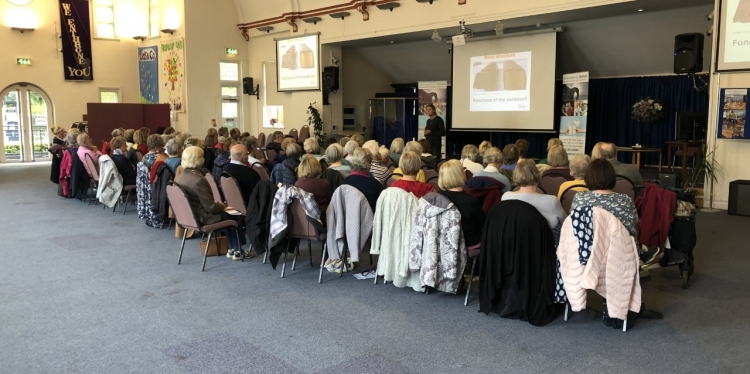Osteoporosis experts warn results of new vitamin D and calcium supplement study may cause confusion
The following information is taken from the NOS.
A new study which suggested vitamin D and calcium supplements do not reduce the risk of bone fractures in healthy older people may cause confusion says leading academics and bone health experts.
The study published recently in JAMA and authored by researchers at Tianjin Hospital in China – reviewed the results of 33 research trials and concluded there is no reduction in fractures in people aged 50 or over living in the community who take the supplements.
More than 51,000 participants took part in the trials, which looked at whether the supplements reduced the risk of hip and spinal fractures, as well as other types of common fractures. The participants, who were not from nursing homes or living in institutional settings, were given vitamin D and calcium supplements and compared to those who had taken a placebo.
Experts are concerned that many people who need calcium or vitamin supplements may stop taking them as a result of the study findings. In addition some health professionals may be reluctant to prescribe or advise supplementation.
Roger Francis, Emeritus Professor, Emeritus Professor of Geriatric Medicine at Newcastle University and a National Osteoporosis Society Clinical and Scientific Fellow said, although the findings of the JAMA paper were consistent with data from the Cochrane Review on vitamin D and other recent meta-analyses, the concerns raised by ASBMR were worth highlighting.
The study showed what we already knew about vitamin D and calcium supplements, but it is important that people who need supplements do not stop taking them,” Professor Francis said. ‘ There are many situations when supplementation is very useful – either because people can’t get enough through their diet; they aren’t getting sufficient vitamin D through sunlight exposure or they need supplementation to support their osteoporosis drug treatments.
A recent statement on the ASBMR website urged patients and healthcare professionals to approach the findings with caution.
Although the study reports that there is no evidence that these supplements prevent bone breaks or hip fractures for adults over 50 who are not living in hospitals, nursing homes or other facilities, it is critical for all to understand that this analysis focuses only on healthy adults. The results of this study do not apply to people with osteoporosis or other metabolic bone diseases or to people taking bone protective medications. For them, adequate calcium intake and vitamin D status needs to be ensured for their medications to be effective in preventing fractures.
These findings may cause continued confusion for patients, their caregivers and their physicians about who should and who should not be taking supplemental vitamin D and calcium,” said ASBMR President Michael Econs, “It’s important that everyone understand the guidelines that pertain to their health conditions and risks.



